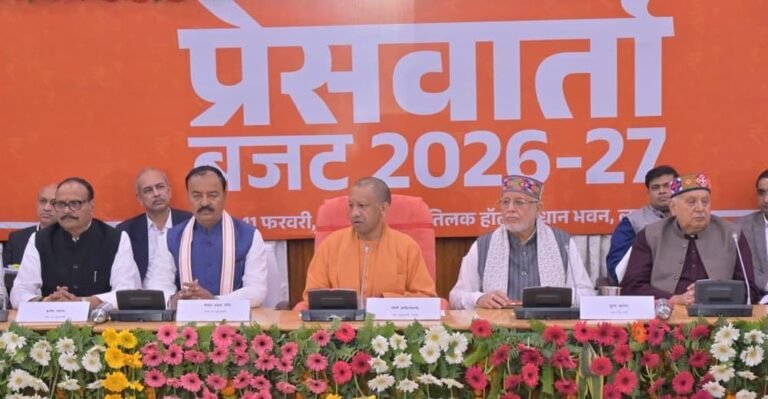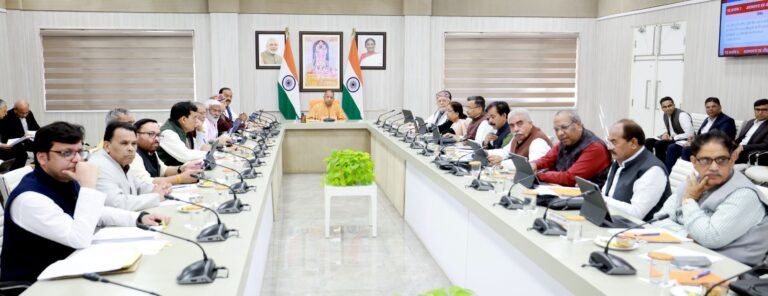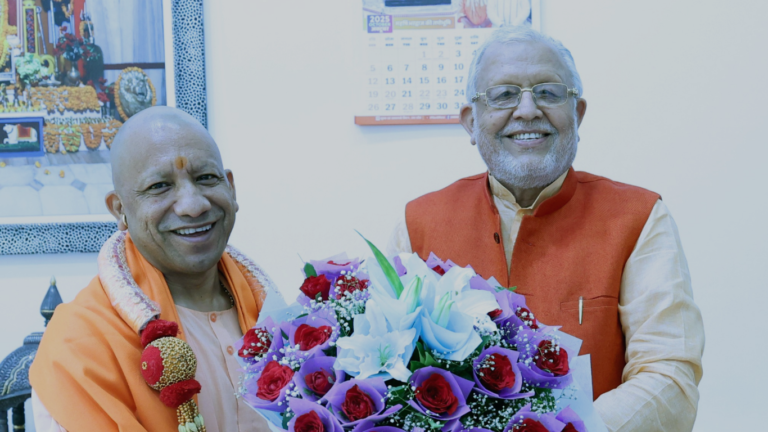
The Uttar Pradesh Public Service Commission (UPPSC) is a gateway to prestigious government jobs in one of India’s largest states. If you’re dreaming of a career as a Deputy Collector, Deputy Superintendent of Police, or another high-ranking official, the UPPSC is your path. This article covers everything you need to know about the UPPSC—its role, how to apply, the exams, preparation tips, salary, job roles, and more. Let’s explore things that makes UPPSC a cornerstone of Uttar Pradesh’s administrative system and how you can navigate its processes to achieve your career goals.
General Information About UPPSC
The Uttar Pradesh Public Service Commission, established on April 1, 1937, is a constitutional body tasked with recruiting candidates for various state government positions. Headquartered in Prayagraj, UPPSC operates under the Constitution of India, ensuring fair and transparent selection for civil services and other administrative roles. Its main job is to conduct exams like the Provincial Civil Services (PCS), Assistant Conservator of Forest (ACF), Range Forest Officer (RFO), and Assistant Prosecuting Officer (APO) exams. These exams fill critical roles in departments like revenue, police, education, and forest services.
UPPSC is known for its rigorous yet impartial process, selecting candidates based on merit through a multi-stage examination system. In 2025, UPPSC announced 200 vacancies for PCS posts, including roles like Sub Registrar, Law Officer, and Block Development Officer, alongside 10 ACF positions. The commission releases an annual exam calendar, detailing key dates for notifications, applications, and exams, helping candidates plan their preparation. Its official website, uppsc.up.nic.in, is the go-to source for all updates, notifications, and application processes.
The UPPSC’s role isn’t just about exams—it advises the state government on recruitment rules, promotions, and disciplinary matters. It’s a vital cog in Uttar Pradesh’s administrative machinery, ensuring the state runs smoothly with capable officers. For aspiring civil servants, understanding UPPSC’s structure and processes is the first step toward a rewarding career.
Application and Registration Process
Applying for UPPSC exams is straightforward but requires attention to detail. The process is entirely online, and candidates must complete a One-Time Registration (OTR) on the UPPSC website before applying for any exam. Here’s a step-by-step guide to the application process:
a. One-Time Registration (OTR): Visit uppsc.up.nic.in and register using your email and phone number to get an OTR number. This unique ID is required for all future applications. Keep it safe, as it’s your key to accessing the candidate dashboard.
b. Check Notifications: Go to the “All Notifications/Advertisements” section on the website. Select the exam you want to apply for, like PCS or RO/ARO, and read the official notification for eligibility, vacancies, and deadlines.
c. Fill the Application Form: Log in to your candidate dashboard using your OTR number. Fill out the application form with personal details, educational qualifications, and post preferences. For 2025, the PCS application window opened on February 20 and closed on March 24.
d. Upload Documents: Submit scanned copies of your photograph, signature, and required certificates (like degree mark sheets). Ensure they meet the size and format specified in the notification.
e. Pay the Application Fee: The fee varies by category: ₹125 for General/OBC, ₹65 for SC/ST, and ₹25 for PwD candidates. Pay online via net banking, card, or UPI. Non-payment leads to application rejection.
f. Submit and Save: Double-check your details, submit the form, and download the confirmation page for your records.
For 2025, the PCS application window was February 20 to March 24, with a correction window until April 4. Always check the official notification for exact dates and requirements, as incomplete or incorrect applications can be canceled at any stage.
Exams and Recruitment
UPPSC conducts several exams to recruit for state government posts, with the Combined State/Upper Subordinate Services (PCS) exam being the most prominent. Other exams include the RO/ARO (Review Officer/Assistant Review Officer), ACF/RFO, and APO exams. The PCS exam recruits for roles like:
a. Deputy Collector
b. Deputy Superintendent of Police (DSP)
c. Block Development Officer (BDO)
d. Sub Registrar
e. Assistant Labour Commissioner
f. District Basic Education Officer
In 2025, UPPSC announced 200 PCS vacancies and 10 ACF posts, though numbers may change based on state needs. Each exam follows a multi-stage process: Preliminary, Mains, and Interview. Candidates must clear each stage to move forward. The recruitment process is competitive, with over 15,000 candidates shortlisted for the 2024 Mains from 220 vacancies, showing the high demand for these posts.
Exams are held annually, with the 2025 PCS Prelims set for October 12 in a single shift. Notifications, released in January or February, detail vacancies, eligibility, and exam schedules. Candidates should regularly check the UPPSC website for updates, as dates may shift.
Syllabus and Preparation
The UPPSC syllabus is vast but manageable with a focused approach. The Prelims and Mains exams test different skills, so understanding the syllabus is key.
Prelims Syllabus
The Prelims consist of two papers, both objective and held on the same day:
a. Paper I (General Studies-I, 200 marks): Covers current events, Indian history, national movement, geography (India and world), polity, economy, general science, and Uttar Pradesh-specific knowledge. Expect questions on UP’s culture, history, and festivals.
b. Paper II (CSAT, 200 marks): Tests comprehension, logical reasoning, basic math, and decision-making. It’s qualifying, requiring a minimum 33% score.
Mains Syllabus
The Mains exam has eight compulsory papers, each 200 marks and three hours long:
a. General Hindi: Grammar, essay writing, letter drafting, and comprehension.
b. Essay: Write essays on topics like national issues, UP-specific topics, or social challenges.
c. General Studies (Papers 1–6): Cover history, culture, polity, economy, environment, science, ethics, and UP-specific topics like agriculture and festivals. Papers 5 and 6 focus heavily on Uttar Pradesh’s geography, history, and administration.
Preparation Tips
a. Study the Syllabus: Download the official syllabus from uppsc.up.nic.in. Focus on UP-specific topics, as they’re emphasized in Mains.
b. Read Newspapers: Follow The Hindu or Indian Express for current affairs. Note UP-related news, like government schemes or festivals.
c. Use Standard Books: For history, read Bipin Chandra; for polity, M. Laxmikanth; for geography, NCERTs. Add UP-specific books like “Uttar Pradesh General Knowledge” by Arihant.
d. Practice Past Papers: Solve previous years’ questions, available on the UPPSC website, to understand the exam pattern.
e. Mock Tests: Take regular mock tests to improve speed and accuracy, especially for CSAT’s reasoning and math.
f. Time Management: Allocate time daily for each subject. For Mains, practice answer writing to structure responses clearly.
g. Stay Updated: Follow UPPSC’s official notifications and calendar for any syllabus or pattern changes.
The removal of optional subjects in 2023 made Mains more UP-focused, so dive deep into the state’s history, geography, and policies. Joining a coaching institute like IAShub or practicing with online platforms can boost preparation, but self-study works if you’re disciplined.
Exam Pattern and Stages
The UPPSC PCS exam has three stages, each testing different skills:
a. Preliminary Exam: Two objective papers (GS-I and CSAT), each 200 marks, held in one day. GS-I counts for merit, while CSAT is qualifying (33% minimum). Negative marking applies (0.33 marks deducted per wrong answer). Around 15 times the vacancies are shortlisted for Mains.
b. Mains Exam: Eight descriptive papers (General Hindi, Essay, six GS papers), each 200 marks, conducted over a week. From 2023, optional subjects were replaced with two UP-specific GS papers, making the exam more state-focused. Candidates must submit a Detailed Application Form (DAF) after clearing Prelims.
c. Interview (Personality Test): A 100-mark viva-voce in Prayagraj, assessing general knowledge, personality, and suitability for service. Questions often cover current affairs, UP’s culture, and your optional subject (if relevant from past patterns). Candidates must be well-versed in UP’s history and policies.
The final merit list combines Mains and Interview scores. For 2025, the Prelims is on October 12, Mains from June 29 to July 2, and interviews follow. The process is rigorous, with only about 200 candidates selected from thousands.
Admit Card
The UPPSC releases admit cards separately for Prelims, Mains, and Interviews, about 10 days before each stage. For 2025, the Prelims admit card is expected around October 3, available on uppsc.up.nic.in. To download:
a. Visit the “Candidate’s Help Desk” section.
b. Log in with your OTR number, date of birth, and captcha code.
c. Download and print the admit card, checking details like roll number, exam center, and date.
Carry the admit card and a valid photo ID (Aadhaar, voter ID, or passport) to the exam center. If you spot errors, contact UPPSC immediately at 0532-2407547 or online at +91-8765973668. Without the admit card, you won’t be allowed to enter the exam hall.
Results and Cutoff
UPPSC declares results after each stage on its website. Prelims results list candidates shortlisted for Mains, typically 15 times the vacancies. Mains results shortlist candidates for Interviews, and the final merit list, based on Mains and Interview scores, is released post-Interview. For 2024, Mains results are expected soon, with 15,066 candidates shortlisted from 220 vacancies.
Cutoff marks vary yearly, depending on vacancies, difficulty, and candidate performance. For 2023, the Prelims cutoff was around 120–125 for General category candidates. Always aim to score 10–15 marks above the expected cutoff to be safe.
Salary and Job Role
Salaries include allowances like Dearness Allowance (DA), Travel Allowance (TA), and government housing. During training, candidates receive a stipend, though the amount varies by post. Job roles involve administrative duties, policy implementation, and public service, with postings in departments like revenue, police, or education. Promotions, based on performance, can lead to higher posts like District Magistrate or Superintendent of Police.
Reservation and Age Relaxation
UPPSC follows Uttar Pradesh government reservation policies:
a. SC/ST: 22% reservation
b. OBC: 27% reservation.
c. PwD, Women, Ex-Servicemen: Additional benefits as per rules.
Age limits for PCS exams are 21–40 years as of July 1, 2025. Relaxation includes:
a. SC/ST/OBC (UP natives): 5 years (up to 45 years).
b. PwD: 15 years (up to 55 years).
c. Ex-Servicemen (5+ years service): 5 years (up to 45 years).
d. Emergency/Short Service Commissioned Officers: Specific conditions apply, requiring certificates of no disciplinary action and willingness to exit military service if selected.
There’s no limit on exam attempts, provided you’re within the age limit. Always verify eligibility in the notification, as post-specific requirements (e.g., law degree for Sub Registrar) may apply.
UPPSC Helpline Number
For queries or issues, contact UPPSC at:
a. General Inquiries: 0532-2407547
b. Online Support: +91-8765973668
c. Email: online.uppsc@nic.in
These are available for issues like application errors, admit card discrepancies, or exam-related doubts. Reach out promptly to resolve problems before deadlines.
Conclusion
The UPPSC is a challenging yet rewarding path to a prestigious career in Uttar Pradesh’s government. From registration to results, each step demands preparation and precision. Start early, study the syllabus, practice past papers, and stay updated via uppsc.up.nic.in. With dedication, you can join the ranks of UP’s civil servants, shaping the state’s future.



